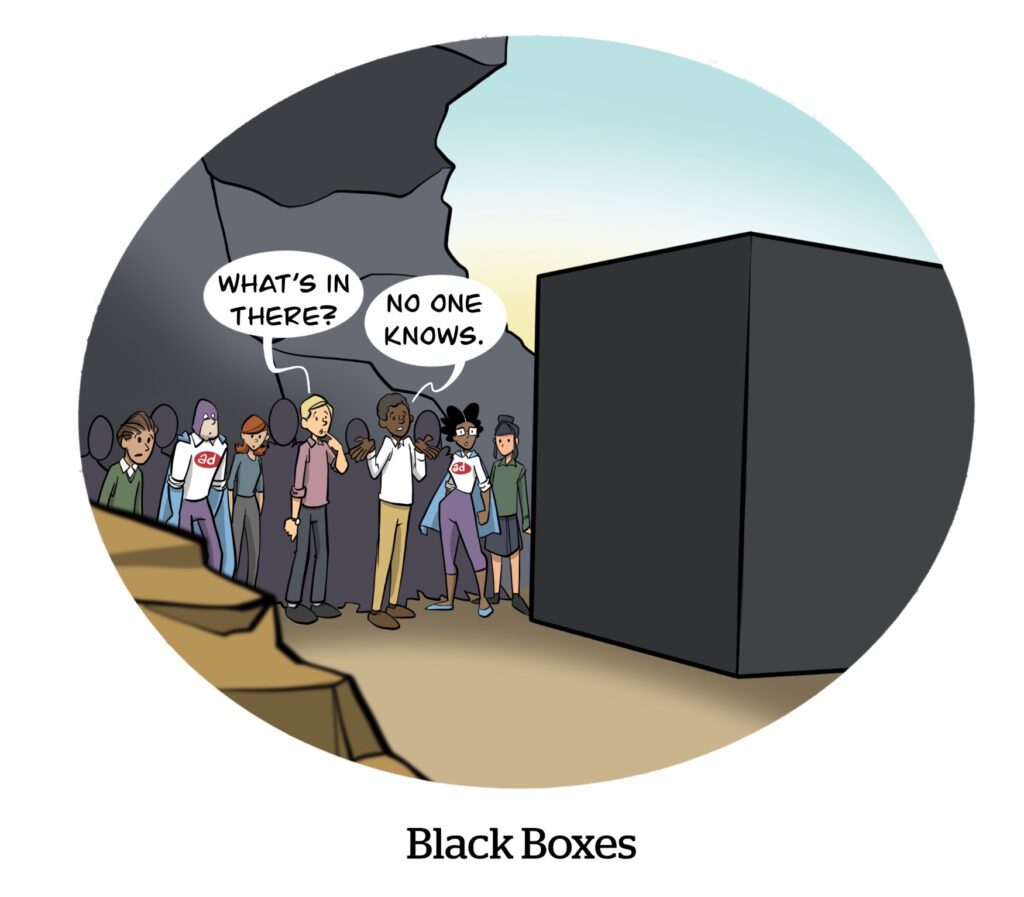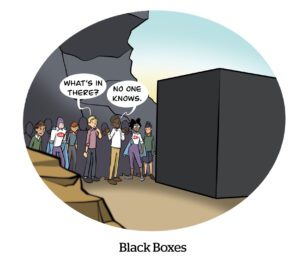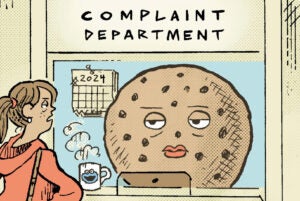Here’s today’s AdExchanger.com news round-up… Want it by email? Sign up here.
Performance Minimum
Google just made a couple of small – but important – transparency-related concessions on Performance Max.
One compromise is that third-party brand safety tech will now be available for YouTube placements.
Advertisers still won’t be able to see exactly where their ads served – or even what they looked like. Buyers have to trust YouTube and the vendor’s assurance that the ads met brand suitability standards.
But placement reporting could serve as a general barometer for how much a campaign has been served on YouTube. (PMax funnels all Google inventory – Search, Maps, Discover, YouTube, Gmail, etc. – into one bucket, which makes it hard to know what’s running where.)
The second PMax update is for “asset-level conversion reporting.” Sounds boring, but it’s a potential biggie.
PMax advertisers don’t upload finished ads with complete copy and fleshed-out creative. Instead, Google gets a brand’s product catalog, creative library, previous copy and product page text, search keyword lists and more – then assembles the ads itself.
Each individual creative element that can be tweaked by the AI is considered an asset.
Problem is, PMax advertisers have had no way of knowing which assets performed best.
Did a quick YouTube clip outperform longer ads? Did a certain call to action convert and not another? What word combinations led to conversions?
These are some of the questions PMax buyers may start being able to answer.
Heartless Bots
Publishers are blocking site crawlers operated by LLMs and AI models, including OpenAI, Google and Anthropic.
One way to avoid getting blocked would be to, you know, pay publishers to license their data.
But Anthropic took a different approach, which was to simply change the name of its crawler bot and continue as normal, 404 Media reports.
“ANTHROPIC-AI” and “CLAUDE-WEB” were its initial trackers. But now there’s “CLAUDEBOT” surreptitiously scraping sites. Meanwhile, Perplexity, another AI chatbot startup, was spotted doing the same.
The impact of scraping is not trivial, especially for some small or independent publishers. For example, Anthropic’s CLAUDEBOT hit home repair guide site iFixit (a particularly fruitful resource for an LLM) more than one million times in one day. Another publisher called Read the Docs said bots accessing its site led to $5,000 in bandwidth charges.
Verification services can effectively block ads to bot traffic. But publishers pay server fees to host bots – even when bots are unabashedly stealing their intellectual property.
Considering OpenAI’s NYT plagiarism suit and the blow-up involving Scarlett Johansson – who rejected an offer to be the voice of OpenAI’s chatbot, only to have her voice used anyway – startup LLMs are failing all over the place on basic business ethics.
RAG Time
Speaking of LLMs, news publishers are negotiating more favorable deals for specialized gen AI use cases, Axios reports.
Typically, LLMs can indiscriminately scrape the entire web for training data. But to provide accurate responses to queries about current events, generative AI needs smaller pools of data vetted by news publishers in real time. AI can only access such data through a process called Retrieval Augmented Generation (RAG).
In practice, RAG integrations are more explicit about where they’re sourcing their information from. For example, OpenAI’s SearchGPT has RAG deals with The Atlantic and News Corp, and its responses to queries that cite these sources include a sidebar with links. These publishers also control how their content appears in results.
Publishers still rely on ad revenue from referral traffic to cash in on RAG integrations (other than the annual licensing fee). But OpenAI and smaller firms like TollBit are also rolling out marketplaces where publishers can create specialized gen AI tools and receive a cut of revenue for their use.
Whether these new gen AI applications can replace the ad revenue publishers earned from traditional search referrals, however, remains to be seen.
But Wait, There’s More!
Bad news for Google’s Olympics ad: Turns out, nobody likes the idea of using AI to help a child write fan letters [CNN]. But, wait, was it actually good? [Business Insider]
Should Amazon be responsible for everything it sells and ships? A US agency will soon decide. [WSJ]
Ad tech bosses balance frustration and focus after Google’s latest shift on third-party cookies. [Digiday]
Days after IAC Chair Barry Diller called FTC Chair Lina Khan a “dope” who should be replaced, reports indicate the agency is in the midst of conducting multiple ongoing investigations into IAC’s subsidiaries. [CNN]
The UK’s Competition and Markets Authority is looking into Google’s partnership with Anthropic. [AP]

















